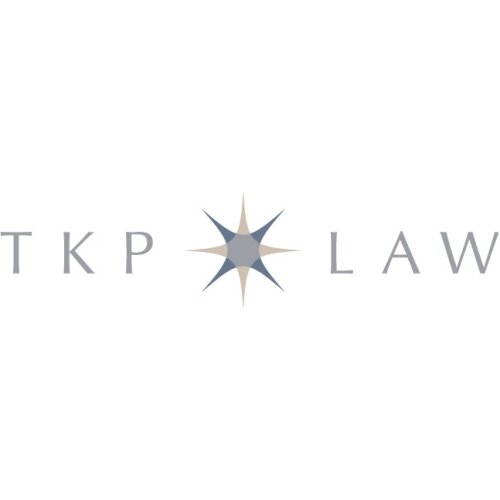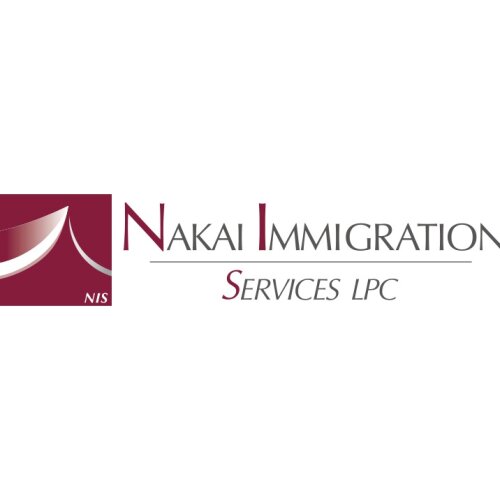Best Dependent Visa Lawyers in Tokyo
Share your needs with us, get contacted by law firms.
Free. Takes 2 min.
List of the best lawyers in Tokyo, Japan
About Dependent Visa Law in Tokyo, Japan
A Dependent Visa in Tokyo, Japan, allows family members of foreign nationals working or residing in Japan on certain visa categories to legally live with their family members in the country. These dependents typically include spouses and children. The Dependent Visa enables family members to stay in Japan for the same duration as the principal visa holder. While dependent visa holders are generally not permitted to work full-time, they can apply for permission to engage in part-time work. Understanding the application process, requirements, and restrictions is crucial for successful family reunification under this visa type.
Why You May Need a Lawyer
There are several situations where seeking legal advice for a Dependent Visa in Tokyo may be essential. Firstly, navigating the complex Japanese immigration system can be daunting, especially for those unfamiliar with the language and legal nuances. Errors in documentation or misunderstanding of the procedure can lead to delays or rejections. Legal experts can help in accurately completing the application and compiling necessary documents. Additionally, in cases where there are complications such as non-traditional family structures or previous visa violations, a lawyer's expertise can prove invaluable in advocating your case. Furthermore, if there are changes in immigration laws or policy adjustments, legal guidance can ensure that you are well-informed and compliant with the latest standards.
Local Laws Overview
The Immigration Control and Refugee Recognition Act governs the issuance of Dependent Visas in Japan. This law outlines the eligibility requirements, application procedures, and conditions for the issuance and renewal of Dependent Visas. In Tokyo, legal infrastructure supports rigorous scrutiny of applications to prevent misuse. It's crucial for applicants to understand that dependents must predominantly rely on the financial support of the principal visa holder. Obtaining a "Permission to Engage in Activity other than that Permitted under the Status of Residence Previously Granted" is essential for dependents wishing to work part-time. Ensuring all legal criteria are met, including financial proof, relationship verification, and residential stability, plays a vital role in a successful application.
Frequently Asked Questions
What is a Dependent Visa in Japan?
A Dependent Visa allows spouses and children of foreign nationals residing in Japan to live in the country alongside their family member who holds a working or long-term residence status.
Can Dependent Visa holders work in Japan?
Dependent Visa holders are not allowed to engage in full-time employment but can apply for permission to work part-time, limited to a specified number of hours per week.
How long is a Dependent Visa valid?
The duration of a Dependent Visa is typically tied to the validity of the principal visa holder's residence status and can be renewed accordingly.
What are the essential requirements for a Dependent Visa application?
Key requirements include proof of relationship to the principal visa holder, financial support documents, and legal residency documents of the principal holder.
Do I need to speak Japanese to apply for a Dependent Visa?
While knowledge of Japanese is beneficial, it is not mandatory for the application process. However, having access to translation services or assistance can help ensure accurate completion of documents.
Can a Dependent Visa holder switch to a different visa type?
Yes, a Dependent Visa holder may switch to a different visa type, such as a student or work visa, if they meet the specific criteria and undergo the appropriate application process.
What happens if the principal visa holder's status changes?
A change in the principal visa holder's status, such as a job change or legal residency status, can impact the dependent's visa, requiring updates or adjustments to the dependent's status.
Is financial proof necessary for Dependent Visa approval?
Yes, providing financial proof to demonstrate the ability to support dependents during their stay in Japan is crucial for visa approval.
Can children attend school on a Dependent Visa?
Yes, children on Dependent Visas are eligible to attend schools in Japan, including public, private, and international institutions.
How can a lawyer assist with the Dependent Visa renewal process?
A lawyer can help navigate the renewal process, assist with document preparation, ensure compliance with current laws, and represent your interests in communication with immigration authorities.
Additional Resources
For further assistance, consider reaching out to resources such as the Tokyo Immigration Bureau, the Japan Legal Support Center, and embassies or consulates relevant to your nationality. Additionally, many non-profit organizations in Japan offer assistance and information for expatriates and their families navigating the visa process.
Next Steps
If you need legal assistance for a Dependent Visa in Tokyo, Japan, consider consulting with an immigration lawyer who specializes in family immigration matters. Start by gathering all necessary documents and identifying any potential complications in your case. Schedule a consultation to discuss your situation and explore your options. It's also wise to stay informed about any changes in immigration policies that might impact your visa application or renewal. By proactively seeking legal guidance, you can enhance your chances of a smooth and successful visa application process.
Lawzana helps you find the best lawyers and law firms in Tokyo through a curated and pre-screened list of qualified legal professionals. Our platform offers rankings and detailed profiles of attorneys and law firms, allowing you to compare based on practice areas, including Dependent Visa, experience, and client feedback.
Each profile includes a description of the firm's areas of practice, client reviews, team members and partners, year of establishment, spoken languages, office locations, contact information, social media presence, and any published articles or resources. Most firms on our platform speak English and are experienced in both local and international legal matters.
Get a quote from top-rated law firms in Tokyo, Japan — quickly, securely, and without unnecessary hassle.
Disclaimer:
The information provided on this page is for general informational purposes only and does not constitute legal advice. While we strive to ensure the accuracy and relevance of the content, legal information may change over time, and interpretations of the law can vary. You should always consult with a qualified legal professional for advice specific to your situation.
We disclaim all liability for actions taken or not taken based on the content of this page. If you believe any information is incorrect or outdated, please contact us, and we will review and update it where appropriate.











